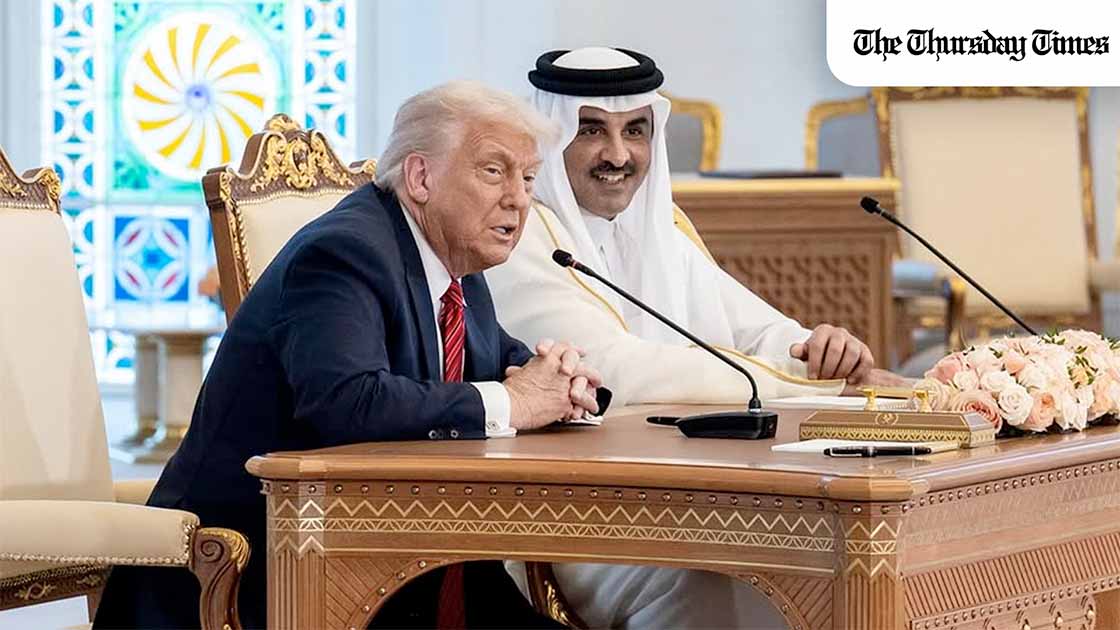WASHINGTON (THE THURSDAY TIMES) — President Donald Trump issued an executive order guaranteeing the security and territorial integrity of Qatar, declaring that any attack on the Gulf nation would be treated as a direct threat to the United States. The order commits Washington to defend Qatar through diplomatic, economic and, if necessary, military means.
The announcement came in the wake of a sudden Israeli air strike on Qatari territory, a move that provoked swift international condemnation and jolted the fragile balance of power in the Gulf. In a striking reversal, Israeli Prime Minister Benjamin Netanyahu delivered a formal apology to Qatar’s leadership over the phone during a meeting with Trump at the White House, a gesture that diplomats described as unprecedented.
Qatar has long served as host to American forces and a strategic hub for military operations in the Middle East. Beyond its role as a base, Doha has positioned itself as a key mediator in regional disputes, from facilitating talks with the Taliban to navigating tensions between rival Gulf powers. The Israeli attack, followed by Trump’s sweeping pledge of protection, underscored Qatar’s rising strategic weight.
The executive order states that any assault on Qatari territory, sovereignty or infrastructure will be interpreted as a threat to American peace and security. It further instructs the Pentagon, the State Department and intelligence agencies to pursue joint contingency planning with Qatari authorities to ensure a rapid response to foreign aggression.
The order also directs the Secretary of State to reaffirm Washington’s assurances to Doha and to coordinate with allies on complementary security guarantees. In a nod to Qatar’s growing diplomatic profile, the document highlights the country’s record of mediation and pledges continued partnership in conflict resolution.
For analysts, the timing is as significant as the content. The strike on Qatar not only strained Tel Aviv’s already fragile regional relations but also triggered an extraordinary moment in which Netanyahu felt compelled to apologise publicly. The White House’s decision to fold that episode into a new American security doctrine for Qatar suggests Washington sees Doha not just as a host but as a frontline ally.
The implications for the Gulf are profound. By extending an overt military guarantee, Trump effectively elevated Qatar’s status, signalling to regional rivals that Washington will not tolerate aggression against the gas-rich emirate. Observers suggest the move could reshape Qatar’s relations with Saudi Arabia and the United Arab Emirates, while heightening tension with Iran.
Israel’s brief strike and hasty retreat illustrate how the calculus in the Gulf is shifting. Once sidelined and blockaded, Qatar has emerged as a player too strategically vital to isolate. The fact that an Israeli leader was forced into a personal apology underlines both Qatar’s leverage and Washington’s determination to shield it.
For the United States, the executive order is a message as much as a policy. It signals to allies and adversaries alike that America is prepared to extend its protective umbrella over Qatar at a moment of escalating uncertainty in the Middle East. For Qatar, it marks a formal recognition of a partnership that has long operated in practice but never before been set in law.





